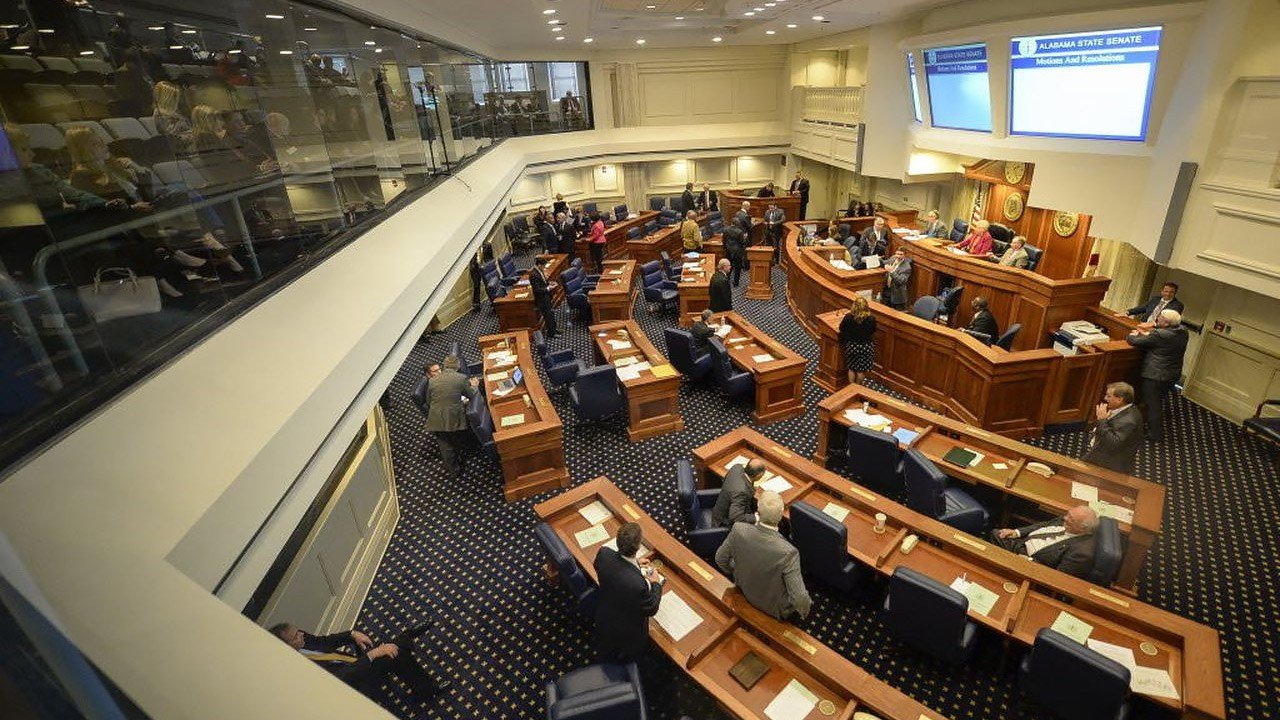Alabama lawmakers push for harsher penalties on illegal gambling operations

As Alabama gears up for its 2025 legislative session, a newly pre-filed bill is seeking to significantly increase the penalties for illegal gambling operations. The legislation, championed by Rep. Matthew Hammett (R-Dozier), comes in response to repeated instances of illegal gambling, particularly in areas like Covington County, where current laws have proven insufficient to deter offenders.
Hammett highlighted a specific case involving a convenience store owner in Covington County who was caught selling illegal scratch-off lottery tickets. He pointed to the limitations of the existing legal framework, which he believes allows offenders to continue their activities with little consequence.
“We had some in the store, and they sent in Opp Police Chief [Kevin] Chance. He and the district attorney went in and got him,” Hammett said, recalling the incident. “And they said they’ll be back up in six months ’cause it was just a misdemeanor. All we can do is just slap [them] on the wrist.”
Currently classified as a Class A misdemeanor, the offense of operating an illegal gambling business does not carry significant penalties. Hammett’s proposed bill would elevate it to a Class C felony, coupled with a mandatory minimum fine of $1,000, in hopes of creating a stronger deterrent.
While the bill seeks tougher action against illegal gambling, Hammett stressed that it is not intended to target legally sanctioned operations. Dog and horse tracks, which operate under a constitutional amendment, would remain unaffected by the proposed law.
“We’re not going after these people that are operating under a constitutional amendment, like dog or horse tracks. That’s not the purpose of this bill. It’s strictly for these illegal operations outside of the CA’s,” Hammett clarified.
Despite support for the crackdown on illegal gambling, some lawmakers argue that a broader, more inclusive approach is needed. Rep. Sam Jones (D-Mobile) has been vocal about the need for comprehensive gambling reform, urging the state to address both illegal and legal gambling in a unified bill. Jones believes that addressing the issue in piecemeal efforts is a short-term solution that could lead to prolonged legal battles and ineffective outcomes.
“We think the issue of gaming in Alabama should be addressed in a comprehensive manner. So we can cover all bases as it relates to dealing with illegal gaming — as well as legal gaming — in the state," he said.
Jones spent 18 months working on a comprehensive gambling bill during the last legislative session, but it failed to pass by a single vote. He remains concerned that without a broader proposal, efforts like Hammett’s could face years of legal challenges, potentially stalling progress.
“The problem with not doing a comprehensive proposal to address it and passing a comprehensive proposal — you see a lot of piecemeal efforts,” Jones said. “And then those efforts are challenged at the Supreme Court and they’re challenging court for years. And we still don’t get what we’re looking for.”
Hammett, while focused on shutting down illegal gambling operations, acknowledged the larger issue at hand but maintained that his bill is a necessary step in addressing the immediate problem. He expressed hope that lawmakers on all sides of the gambling debate could agree on the need to tackle unregulated gambling businesses.
“It’s just padding the pockets of these illegal operators, and I hope we can all come together. Like I said earlier, no matter what side of the gambling issue you were on, we all agree there’s a tremendous problem of illegal gambling in the state,” said Hammett. “And this bill is an effort to try and do something about it.”
Last session’s failed gambling bill, which included provisions for creating an enforcement arm for gambling regulations, highlighted the challenges facing any gambling-related legislation in Alabama.
















































